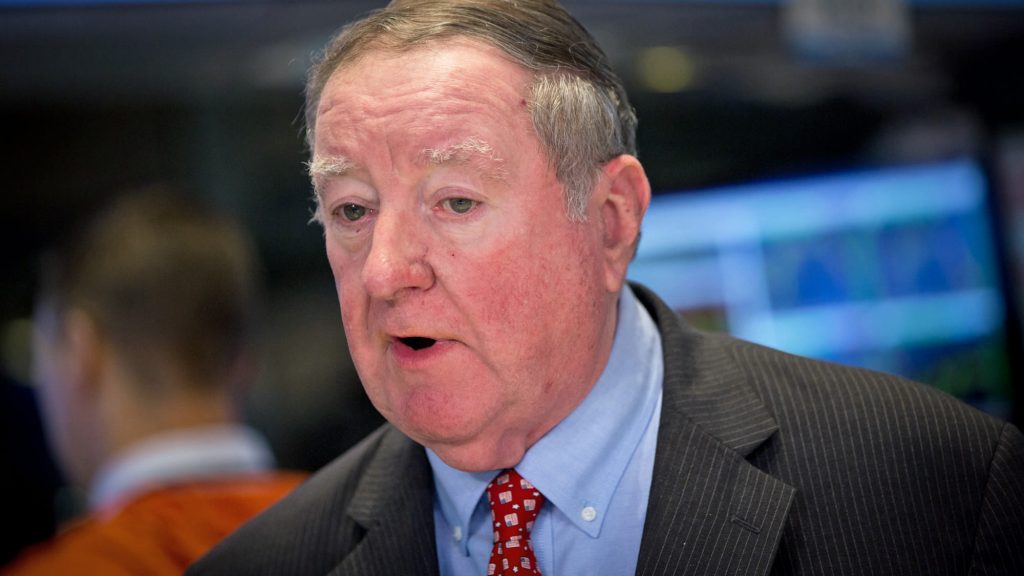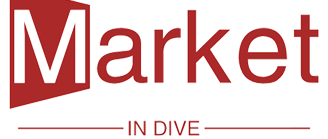Every December for the past 14 years Art Cashin and his “good friends of fermentation” have gathered at the front bar at Bobby Van’s Steakhouse throughout from the NYSE to commemorate the vacations, and we’ve used the chance to get Art’s take on the year ahead. We weren’t able to fulfill at Bobby Van’s this year, however, Art was undeterred. Bobby Van’s sent Art a real barstool to rest on, and we overtook him through Zoom from his house in New Jersey. Below are edited excerpts from the interview.
Art, before we get to the brand-new year, let’s do a fast appearance back at 2021. What stood apart for you? The fantastic 30% move down in March, and the quick healing? Is the Fed the hero here or is it just the strength of the U.S. economy?
A: What I believe it was is, this was the very first and only self-induced economic crisis. The federal government shutdowns and all of the constraints that happened around the nation. It was the federal government that basically enforced the truth that we were going through an economic downturn. Other economic downturns are triggered by displacement in rates of interest and things like that, so because this was done straight, it had an immediate effect. We had the stock market plummet, and then it reversed, and I must say, the stock market’s done better than the economy has. People discussed V-shaped healing well, we got one in the stock market. We certainly haven’t had one yet in the economy, which’s what we’re wishing for next year.
Anything else that stood out in 2021 beyond the marketplace turn-around?
A: I think what was helpful is, yes, the Fed was practical as you suggested, however, I think what was much handier may have been these care plans, if you would, that the government put in to postpone, suspending things like evictions. You know, you tend to forget it if you, paradise forbid, you get evicted, it’s not simply that you lose the apartment, you lose the furnishings, TV, all way of things that have actually to be replaced at fantastic expense, so by avoiding that, they kept the economy from absolutely collapsing. And so far, as we’re approaching year-end here, that’s why the market is hanging on the concept of [wishing to] get one more stimulus compromise to hold off any further correction in the economy.
Let’s turn to 2022. Inform us what normally happens in the first year of a brand-new presidency.
A: Yale Hirsch of the Stock Trader’s Almanac a number of years back did some research on what he’s called the presidential cycle and discovered that the new president comes in and begins to work on some enhancements on things that are essential to him, and maybe specific other things that they promised– face taxes and things like that, so the first year, definitely, and sometimes the very first two years of a governmental term is the weakest of the four-year cycle. Then by the time we get to towards completion of the 2nd year, obviously the president’s thinking of his reelection, or the reelection of his party if he’s had his complete term. So I would presume that this year things will be confident but might not be rather as robust as some of the things that we have seen in the past, and Bob what’s going to be a real puzzle for traders is that yes we understand who the president is– at least we assume so– however, we’re not truly sure whether the Republicans will have control of the Senate or they will transfer it to the Democrats which’s very important. And that’s everything about the overflow for the two senatorial seats in Georgia, and that can be found at the very start of January.
Another concern mark is inflation. It appears tame now, but product prices have risen quite a bit, typically a precursor of inflation.
A: No, I believe you raise a great point. An excellent trader sees all of the environment around him. And as you explain, product costs– particularly rural products– are increasing in general. That’s always a tip to possible inflationary pressure. Number two, M2– the cash supply– the Fed has been shoveling cash in terms of reserves and complimentary reserves. M2 is rising at an astonishing rate. But the one thing that I warn about, Bob, is the so-called velocity of money– how fast individuals turn it over. I learned years ago that you can just have inflation with money when individuals provide it and invest it. And so far, although the cash supply has increased, totally free reserves have skyrocketed into the trillions, we have not had any real inflation. It’s as if the Federal Reserve flew over your house and dropped a million new dollars on your yard, and you were so afraid of what was going on, you picked it up and put it in the garage. So, giving and investing or lending out to others is not inflation. So, there are early warning indications of possible inflation, but I would tell the audiences, see the velocity of money you can get from the Federal Reserve of St. Louis each week, and search for that statistic. If the velocity of money begins to go up, then head for the basement.

We never speak about inflation in the stock exchange, but isn’t that what has happened? The Fed has flooded the economy with cash, and a lot of it has found its method into stocks. Is it fair to say the stock market has been pumped up because of the Fed’s actions?
A: I think that’s imminently reasonable, as we’ve just recently seen with things like the IPO markets. If you have cash and you’re searching for a rate of return, you’re not going to get it holding it in cash, you’re not going to get it in financial obligation instruments. There’s no yield anywhere. So it’s almost the old TINA– there is no alternative. You’ve got to own stocks. That’s where the action seems, which’s why we have seen individuals rush into IPOs and have some of them double on the first day. There’s clear speculation and I believe that is inflationary pressure in the stock market
The Fed has essentially vowed to do “whatever it takes” to assist the economy. How far do you believe that promise goes?
A: Well, I think that Powell and the others do have the will to do whatever is needed, however they’re quite frustrated. They can earn money available, they can earn money low-cost, however, they can’t invest it for you. And the important thing that moves the economy is, you know, 70% of it is the customer. So they have got to see money invested and that’s why, again and once again as we come to the end of the year, we’re speaking with Mr. Powell and the rest of the Fed that they desire to see the fiscal stimulus, they desire through the federal government to be giving them more cash. They’ll earn the money offered. They’ll make reserves available, but to get the economy moving, you’re going to need to have the government spend a few of those reserves that they’re making.
We are closing out 2021 with stocks at historical highs, but the market is pricey. The S&P 500 is trading for north of 22 times profits in 2022. It’s an extremely rich assessment. Is it justified?
A: I believe that belongs to the flipping the switch on that as soon as the vaccine becomes reliable, once we get anywhere near the so-called herd immunity, that the belief is that people are going to hurry back to motion picture theaters, that they’re going to walk into dining establishments and bars, you and I can anticipate that, however, where will you go and I think that’s a bit of an overstatement, and I believe that the evaluations are somewhat rich. If you look at the quotes even in revenues, individuals are presuming there’s going to be a burst to the benefit, in the economy. And I believe it might be a touch more steady than numerous presume. I know people desperately wish to get out from this sheltering location. Individuals have cabin fever all over, so there is that urgency. However I think it’s been overemphasized and I think the marketplaces, if anything, on the multiples, they’re a bit rich as we enter into the very first year of the governmental cycle.
One of the more crucial advancements this year has been the increase of the retail trader. It’s fantastic to see more individuals get involved in the marketplaces, however, there’s some stress that excessive day trading might trigger lots of to get shut off when the markets remedy. How do you feel about the entire Robinhood result?
A: So, certainly, as you’d state, you wish to see more of America own stocks, own the economy to broaden it out. It’s been among the few extremely successful ways. You know, we had a big period when the genuine estate was going very well. And after that altered and the stock exchange has succeeded, but as you say, it has been a narrower and narrower move. I wish to see new people in. What interrupts me is that they have a various way of thinking, and I believe a great example is a vaccine, and the millennials, the Robinhood types, say with some decent logic, ‘Hey, if the vaccine comes out in 6 months, in 9 months, individuals will be going on cruise lines again. Individuals will be undoubtedly flying a bargain more so I can buy the airline companies.’ So what they do is they just proceed. They took a look at an advancement today and assumed they’d see an outcome nine months out, and state I’ll purchase it today– instead of waiting or phasing their method to see how it goes. That can be a bit troubling and I believe that’s why with these amazing moves in the current IPOs, we’ve seen some fast reversals. And I think it is this new breed of investors who have not had the experiences, in some cases the agonizing experiences, some of us have had that lead us to trade in a somewhat more mindful method. All I say is welcome aboard, however simply be cautious of the volatility you’re creating.

